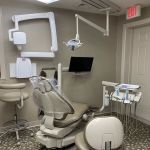Best Dental Care for Teeth Sensitivity: Tips and Solutions
- 1. Understanding Teeth Sensitivity
- 2. Common Causes of Teeth Sensitivity
- 3. Effective Dental Care for Sensitive Teeth
- 4. Choosing the Best Toothpaste for Sensitive Teeth
- 5. How Diet Affects Tooth Sensitivity
- 6. Dental Treatments for Teeth Sensitivity
- 7. Preventive Measures to Minimize Sensitivity
1. Understanding Teeth Sensitivity
Teeth sensitivity, or dentin hypersensitivity, is a common issue that causes discomfort when consuming hot, cold, sweet, or acidic foods and drinks. This condition occurs when the underlying layer of the tooth, called dentin, becomes exposed due to gum recession or enamel wear. Understanding the causes and treatments for sensitive teeth can help you manage this condition effectively and maintain optimal dental health.
2. Common Causes of Teeth Sensitivity
Several factors contribute to teeth sensitivity. Here are the most common causes:
- Enamel Erosion: Over time, tooth enamel wears down, exposing the dentin underneath. This is often caused by acidic foods, beverages, or improper brushing techniques.
- Gum Recession: Gum disease or aggressive brushing can lead to gum recession, exposing the sensitive root surface of the tooth.
- Tooth Grinding (Bruxism): Grinding your teeth, especially at night, can wear down enamel and increase sensitivity.
- Dental Procedures: Some dental treatments, like teeth whitening or fillings, may temporarily increase sensitivity.
Identifying the underlying cause of your teeth sensitivity is the first step towards finding the best solution for your condition.
3. Effective Dental Care for Sensitive Teeth
Maintaining a proper dental care routine is crucial for individuals with sensitive teeth. Here are some effective practices to consider:
- Gentle Brushing: Use a soft-bristled toothbrush and avoid aggressive brushing. This will help prevent further enamel erosion and gum irritation.
- Flossing Daily: Gently floss between your teeth to remove plaque and food particles that can irritate sensitive gums.
- Use a Mouthguard: If you grind your teeth at night, consider wearing a custom-fitted mouthguard to protect your enamel.
- Rinse with Fluoride: Using a fluoride mouthwash or gel can help strengthen your enamel and reduce sensitivity over time.
By incorporating these practices into your daily routine, you can protect your teeth from further damage and reduce sensitivity symptoms.
4. Choosing the Best Toothpaste for Sensitive Teeth
When dealing with sensitive teeth, it's essential to choose the right toothpaste. Look for a toothpaste specifically formulated for sensitive teeth, which contains ingredients like potassium nitrate or stannous fluoride. These ingredients help block the pathways that lead to nerve endings in your teeth, reducing sensitivity.
Some popular options include:
- Pronamel by Sensodyne: A toothpaste designed to protect and strengthen enamel while reducing sensitivity.
- Colgate Sensitive Pro-Relief: Known for its rapid relief from sensitivity, this toothpaste provides long-lasting protection.
- Parodontax: A toothpaste that not only helps with sensitivity but also targets gum health, preventing gum recession.
Make sure to consult your dentist about which toothpaste is best for your specific needs.
5. How Diet Affects Tooth Sensitivity
Your diet plays a significant role in managing tooth sensitivity. Some foods and drinks can exacerbate the condition, while others can help protect your enamel:
- Avoid Acidic Foods: Foods like citrus fruits, tomatoes, and vinegar can wear down enamel and increase sensitivity.
- Limit Sugary and Carbonated Drinks: Sugary drinks can promote tooth decay, and carbonated drinks can cause enamel erosion.
- Eat Calcium-Rich Foods: Dairy products, leafy greens, and fortified foods can help strengthen your enamel and prevent further damage.
Maintaining a balanced diet that supports tooth health is essential to managing teeth sensitivity and protecting your smile.
6. Dental Treatments for Teeth Sensitivity
If home care isn't enough to relieve your teeth sensitivity, several professional treatments can help:
- Fluoride Varnishes: A fluoride treatment applied by your dentist can strengthen your enamel and reduce sensitivity.
- Dental Sealants: These protective coatings can be applied to your teeth to prevent sensitivity caused by enamel wear.
- Desensitizing Agents: Your dentist can apply a desensitizing agent directly to the affected areas of your teeth for long-term relief.
Consulting with your dentist will allow you to choose the best treatment option based on the severity of your sensitivity.
7. Preventive Measures to Minimize Sensitivity
Preventing teeth sensitivity from developing or worsening requires proactive measures. Here are some preventive strategies:
- Brush Properly: Avoid aggressive brushing and use a soft-bristled toothbrush to prevent enamel wear.
- Protect Your Teeth: Use a mouthguard if you grind your teeth or participate in contact sports.
- Visit Your Dentist Regularly: Routine dental checkups and cleanings can help prevent gum recession, enamel erosion, and other issues that contribute to sensitivity.
By incorporating these habits into your routine, you can help prevent and manage tooth sensitivity effectively.







 Contemporary Dentistry4.0 (46 review)
Contemporary Dentistry4.0 (46 review) Richmond Pediatric Dentistry and Orthodontics4.0 (53 review)
Richmond Pediatric Dentistry and Orthodontics4.0 (53 review) Dr. Maha Blaibel, DDS5.0 (6 review)
Dr. Maha Blaibel, DDS5.0 (6 review) Lawndale Christian Health Center Dental Clinic2.0 (34 review)
Lawndale Christian Health Center Dental Clinic2.0 (34 review) Dentists of South Pasadena4.0 (124 review)
Dentists of South Pasadena4.0 (124 review) Shiney Smiles Orthodontics5.0 (165 review)
Shiney Smiles Orthodontics5.0 (165 review) The Importance of Oral Health Education During Pregnancy for a Healthy Pregnancy
The Importance of Oral Health Education During Pregnancy for a Healthy Pregnancy Best Tips for Brushing Your Teeth Properly for Healthy Gums: Essential Techniques for Oral Health
Best Tips for Brushing Your Teeth Properly for Healthy Gums: Essential Techniques for Oral Health Why Skipping Dental Checkups Can Lead to Bigger Oral Health Problems
Why Skipping Dental Checkups Can Lead to Bigger Oral Health Problems Advantages of Porcelain Dental Restorations
Advantages of Porcelain Dental Restorations How Can Diabetes Cause Tooth and Gum Problems? Preventing and Managing Oral Health Issues
How Can Diabetes Cause Tooth and Gum Problems? Preventing and Managing Oral Health Issues Healthy Habits for Promoting Good Oral Health and Hygiene: Tips for a Healthy Smile
Healthy Habits for Promoting Good Oral Health and Hygiene: Tips for a Healthy Smile